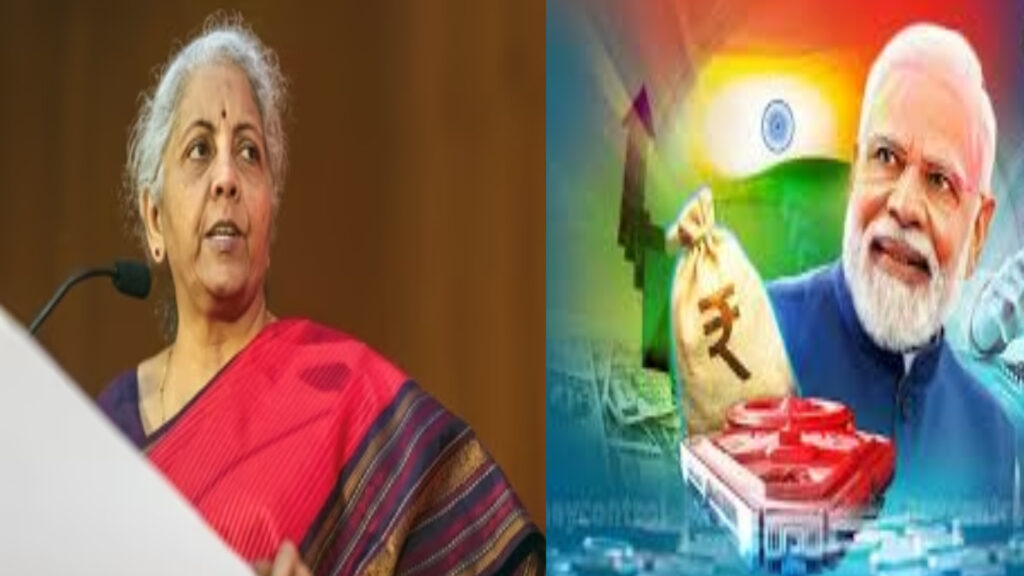Budget 2024 is on the horizon, and various sectors in India are eagerly awaiting the announcements and fiscal policies that Union Finance Minister Nirmala Sitharaman is expected to unveil in the interim Budget for fiscal 2024-25 on February 1. As the last major economic document before the next general elections, the budget is highly anticipated across diverse industries, each with its own set of expectations and wishlist.
India Inc’s Anticipation: India Inc is looking forward to measures aimed at boosting manufacturing, larger funds for infrastructure development, and a focus on social sector schemes. Tax relief is also hoped for, providing a positive outlook for businesses across the country.
Electric Vehicle (EV) Sector: Zypp Electric CEO, Akash Gupta, stresses the importance of prioritizing the electric vehicle (EV) sector for a sustainable future. Key expectations include inclusion in the priority lending scheme, an extension of FAME subsidies, a reduction in GST for EV services, and the introduction of usage-based incentives for EV drivers. Gupta also emphasizes the need to address the last-mile delivery gap, suggesting the recognition of last-mile delivery as a distinct sector under logistics policies.
Tax Rationalization for ESOPs: Avishek Gupta, CEO of Caspian Debt, calls for the rationalization of taxes on Employee Stock Ownership Plans (ESOPs). Gupta highlights the significance of ESOPs in attracting quality talent for startups and proposes taxing ESOPs only at the time of sale, eliminating the current double taxation.
Blended Finance Structures: Gupta also advocates for activating blended finance structures in India, encouraging domestic philanthropic capital to enter blended finance transactions. Blended finance transactions are seen as crucial for addressing issues like climate impact and providing essential services to low-income households. The proposal suggests extending the mandate of Corporate Social Responsibility (CSR) and private philanthropic capital to support such blending, creating a more sustainable and impactful financial ecosystem.
Fintech’s Call for Financial Inclusion: Shikhar Aggarwal, Chairman of BLS E-Services, emphasizes the role of fintech in India’s financial landscape. He anticipates the budget encouraging financial inclusion through tax benefits and measures to curb digital fraud. Aggarwal envisions the budget as a catalyst for India’s fintech revolution, fostering innovation and inclusive growth.
AIF Industry & Capital Markets Expectations: Amit Goel, Co-Founder and Chief Global Strategist at Pace 360, represents the Alternative Investment Fund (AIF) industry and capital markets. The sector looks forward to relaxation of taxation norms for AIFs, especially Category I and II AIFs, which could boost investments. Additionally, there is an expectation for AIFs to receive encouragement to invest in infrastructure projects and small and medium enterprises (SMEs) through tax breaks or co-investment schemes. Measures to attract foreign investments into Indian capital and commodity markets are also desired.
Fintech’s Symbiotic Growth: Gurjot Singh, Co-founder of Collekto, speaks on behalf of the fintech sector, expecting a transformative budget that facilitates symbiotic growth with banking and Micro, Small, and Medium Enterprises (MSMEs). Singh emphasizes the need for capital infusion and technological upgradation initiatives, anticipating enhanced cooperation between fintechs and banks.
MSME Sector’s Need for Regulatory Simplification: Rohit Arora, CEO and Co-founder of Biz2X and Biz2Credit, stresses the importance of simplified regulatory procedures and reduced compliance burdens for startups and MSMEs. Arora anticipates a budget prioritizing financial inclusion and ease of doing business, fostering a conducive environment for growth.
Boosting Ecommerce through Tax Concessions: Shaily Mehrotra, CEO & Founder of Fixderma, anticipates tax concessions and custom duty exemptions to boost the ecommerce industry. With the potential for India to become the world’s second-largest ecommerce market by 2034, Mehrotra emphasizes the importance of supporting MSMEs and startups in this sector through targeted incentives.
In conclusion, Budget 2024 is eagerly awaited across various sectors, each presenting its unique set of expectations. From tax rationalization for ESOPs to fostering sustainable finance structures and encouraging innovation in fintech, the budget holds the key to shaping India’s economic landscape for the next fiscal year. As the government prepares to unveil its interim budget, the hopes and expectations of businesses and industries across the country are poised for a positive transformation.

